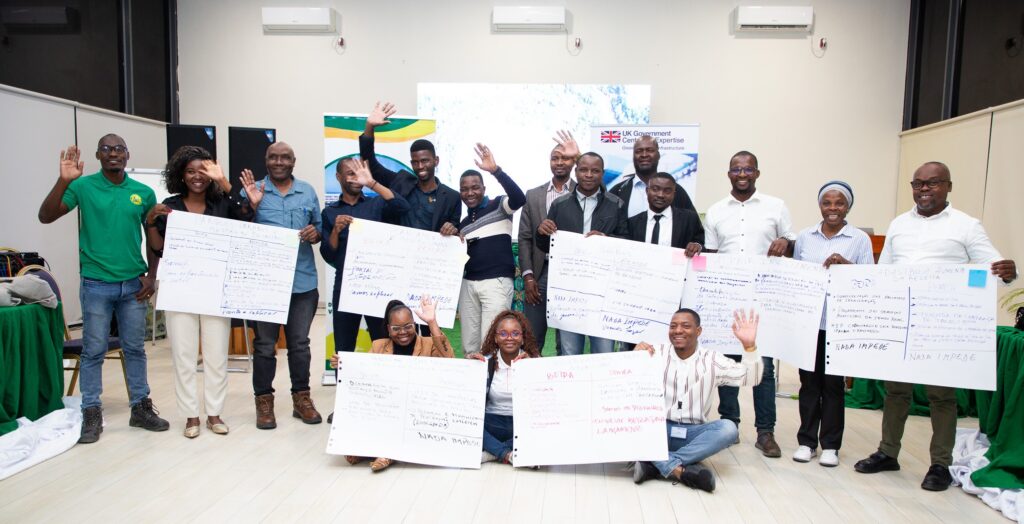- Officials from the coastal cities of Beira, Pemba and Nacala gathered to share experiences around urban planning and climate resilience.
- Discussion topics included drainage, coastal protection, erosion control and nature-based solutions, with technical field visits to relevant projects.
- The workshop captured lessons learned and identified actions for municipalities to adapt and implement in their local contexts.

Workshop participants share their experiences and ideas on improving their cities.
Stakeholders from the cities of Beira, Pemba and Nacala in Mozambique met for a second intermunicipal experience sharing workshop on 28–29 July 2025, addressing urban planning and climate resilience.
Delivered by the Green Cities, Infrastructure and Energy Programme (GCIEP), the workshop was attended in person and online by directors and technical experts from the municipalities, in addition to strategic partners including ADEL (Mozambique’s local development agency), E35 Foundation, UN-Habitat, KfW Development Bank and Blue Deal.
Over 60% of Mozambique’s population live in coastal zones, which are particularly vulnerable to the effects of climate change, including the increasing frequency and severity floods and tropical cyclones.
Therefore, creating a resilient and inclusive urban future is a key focus for the coastal cities of Beira, Pemba and Nacala, and formed the basis of the workshop.
Fittingly, the workshop took place at the Conference Hall of the Chiveve Green Infrastructure Park in Beira – a large-scale urban green space development along the Chiveve River which enhances natural drainage, reduces flood risks and provides recreational spaces for the community.
Opening the workshop, the Mayor of Beira, Albano Carige António, acknowledged GCIEP for creating a platform for dialogue and exchange among municipalities.
“The challenges faced by our cities cannot be solved in isolation. Only through sharing experiences and joint solutions, can we improve the lives of citizens in Beira, Pemba and Nacala.”
Throughout the two-day event, the following key themes were discussed:
- Urban planning and management (featuring case studies from Beira and Pemba)
- Urban parks management (with a focus on Chiveve Park)
- Disaster risk reduction (including the GCIEP emergency response manual)
- Drainage, coastal protection and erosion control
- Solid waste management
- Investment attraction strategies
- Nature-based solutions
The sessions also included technical field visits to infrastructure projects in Beira such as Basins 1 and 2 of the Chiveve Park, the sluice gate system in Palmeiras neighbourhood and the Municipal Cadastre (the register of land ownership and value).
The workshop concluded with the systematisation of lessons learned and the identification of actions that the municipalities of Beira, Pemba and Nacala can adapt and implement in their local contexts, based on the shared good practices observed at the workshop.
The UK’s Green Cities, Infrastructure and Energy Programme is tackling climate change and extreme poverty by accelerating the delivery of sustainable green cities and climate-resilient infrastructure.
Published
13/08/25
